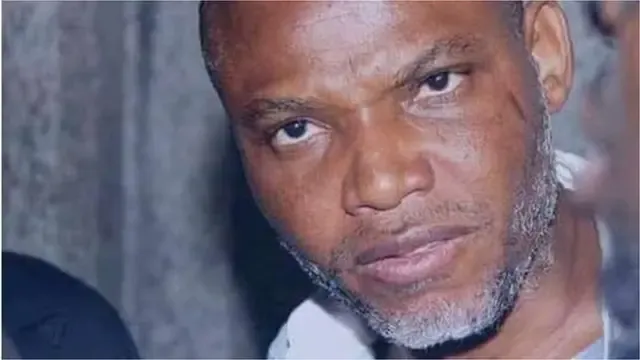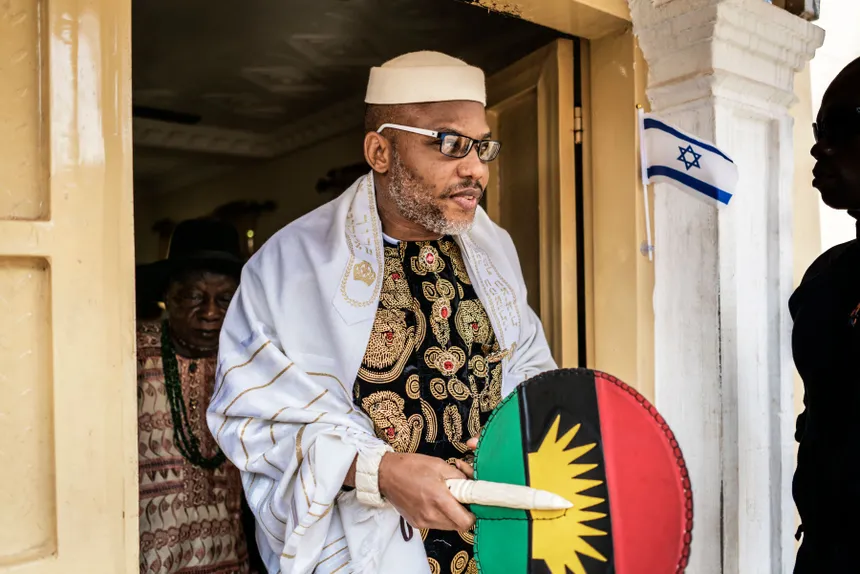Nigeria’s Supreme Court has made a significant decision regarding the terrorism charges against Nnamdi Kanu, the leader of the Indigenous People of Biafra (IPOB) separatist group. The court has overturned a lower court ruling that dismissed the charges against Kanu, citing human rights violations during his arrest and extradition from Kenya in 2021. Justice Garba Mohammed, announcing the decision, stated that while the secret police did violate Kanu’s rights, the Court of Appeal was incorrect in ruling that this was grounds for dismissing the charges.
According to Mohammed, no legislation in Nigeria stripped the trial court of the jurisdiction to proceed with Kanu’s case, despite the illegal actions of the secret police. This means that the trial of Kanu, who also holds British citizenship, is expected to resume next year. Kanu has remained in detention since the Court of Appeal’s ruling and has already pleaded not guilty to the charges.
The decision is a significant blow to Kanu and his supporters, who have accused the Nigerian government of unjustly targeting him to clamp down on the IPOB separatist campaign. The IPOB campaign for an independent state of Biafra follows the short-lived Republic of Biafra, which fought and lost a civil war from 1967 to 1970 to gain independence from Nigeria. The war resulted in the loss of an estimated one million lives, many of whom were from the southeastern region.
The Nigerian government has consistently maintained that the country’s unity is “not negotiable” and has accused Kanu’s group of instigating violence in the southeast. The group has been accused of imposing lockdowns and targeting prominent people in the region, resulting in dozens of deaths this year, which IPOB denies.

Nnamdi Kanu (Via Nnamdi Kanu/Twitter)
The Supreme Court’s decision is likely to further complicate the fate of Kanu, who has been in and out of jail since 2015 when he was first arrested and charged with terrorism and treason. Kanu’s supporters have accused the government of using the charges as a tool to silence the group and suppress the separatist movement.
The IPOB movement has been marked by violence and volatility, with the group’s supporters and critics often engaging in clashes and protests. The group’s demand for independence has also been met with resistance from the Nigerian government, which has accused IPOB of being a terrorist organization.
Despite the challenges and violence, the IPOB movement remains a significant force in Nigerian politics, with many people in the southeast region sympathetic to the group’s demands for independence. The Supreme Court’s decision is likely to further polarize the region, with some groups viewing the charges as a move to silence the separatist movement, while others see it as a necessary step to maintain national unity.
The case of Nnamdi Kanu and the IPOB movement highlights the complex and volatile nature of Nigerian politics, where tensions between different ethnic groups and regional identities continue to simmer just below the surface. The Supreme Court’s decision is likely to continue to shape the country’s political terrain and has far-reaching implications for the future of the region.

